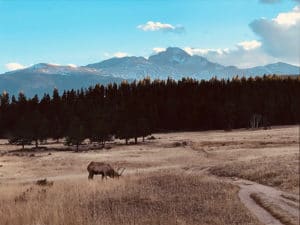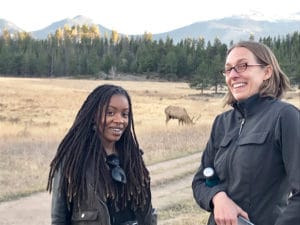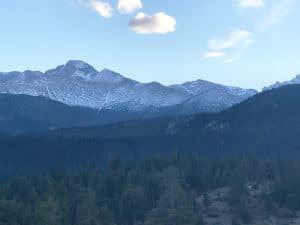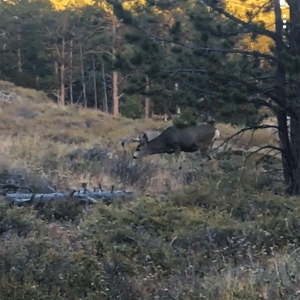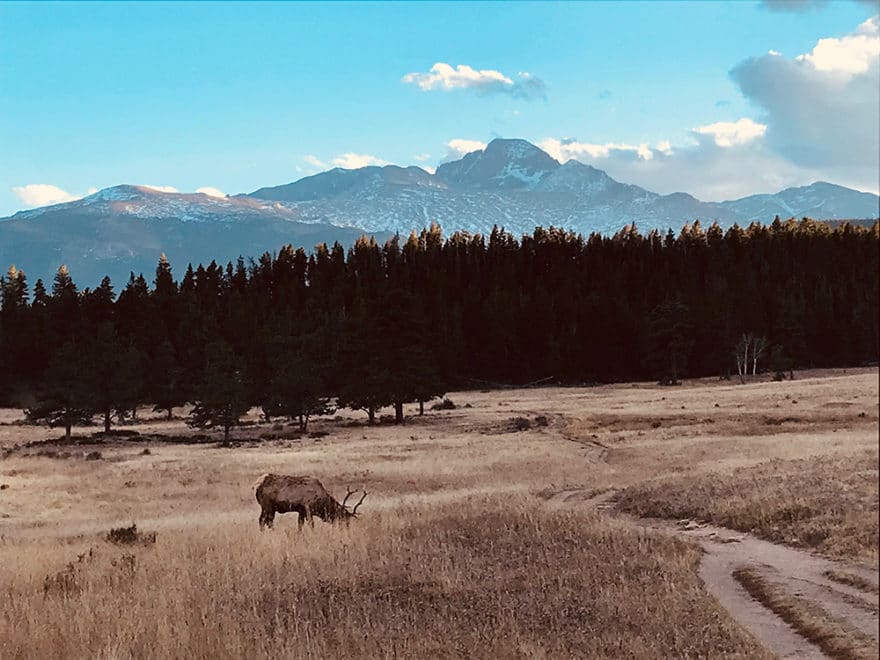NOTE: This post is written by GA Delasha Long.
This past quarter, I attended and presented at my first academic conference, The Conference on Community Writing (CCW). The CCW is a three-day conference that explores how communities write and how writing can be used for community organizing and change. The 2017 conference was held at the University of Colorado in Boulder, CO. Students, instructors, and community organizers from all over the country participated in panels, talks, workshops, and think tanks. Topics ranged from “The Prison Story Project: On the Row”—which provides writing workshops for inmates and converts their writings into theater scripts for live performance—to “Place-Based Literacy Education in Rural Communities: Re-envisioning and Re-inventing Connections to Communities of Practice”—which discusses building better relationships between rural communities, their instructors, and faculty at nearby universities for improved literacy education.
Our Panel Presentation
My main reason for attending CCW was to present on a panel, “Online Community Writing Projects: Building Global Networks to Support Local Action.” The presentation was organized by myself, WRD Associate Professor Lisa Dush, and our non-profit partner from The Goldin Institute, Travis Rejman. Dush has been working with Rejman for several years, in an initiative by The Goldin to build an online app and course in leadership for grassroots leaders worldwide, and I have helped with this project as a research assistant. I was lucky enough to have my conference trip fully funded by DePaul’s College of Liberal Arts and Social Sciences Graduate Research Funding.
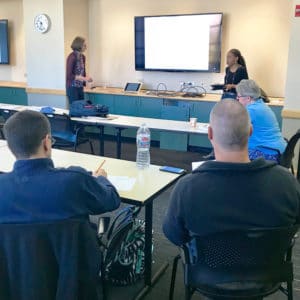
To begin the panel presentation, Dush and I explored the concept of an online space and place as it relates to service-learning projects, using WRD 525: Writing for the Web as a model for this exploration. This is a course that Dush teaches and that I attended in the winter quarter of 2017. During this course, a team of other students and I partnered with The Goldin Institute to develop a content strategy. This project was complex and, we argued, would benefit from a well-designed online place to help coordinate the work of the students, the instructor, and the community partner.
We then opened the discussion to our audience for feedback on some of their personal issues with coordinating service-learning projects. Rejman brought the panel discussion full circle with his introduction of the global online learning management system (LMS) that The Goldin is currently developing, known as the Gather app. While Gather is still being developed—I, along with other DePaul students have recently run user tests on mock-ups of its interface—but the audience fell in love with the platform right away. Gather puts a focus on building learners’ networks, and its design is in stark contrast to the teacher-centered LMSs that faculty know best, like D2L and Blackboard. We closed the panel by asking the audience to think about how a centralized online place with the features of Gather might help them to better coordinate and reach the goals of their own service-learning projects.
Other Conference Events
Along with our successful panel discussion, I attended other sessions, including a roundtable discussion entitled: “Community Writing as Cultural Entrepreneurship: Are We Ready for Critical-Entrepreneurial Rhetorics?” In this roundtable, we discussed whether “cultural entrepreneurship”—using persuasive tactics to change attitudes and values—is a suitable fit for community writing (and the humanities more generally). I was excited to attend this talk because the chairperson of the discussion, Dr. Paul Feigenbaum of Florida International University (FIU), attended the panel that Prof. Dush and Travis and I hosted. Feigenbaum is also the incoming editor for the Community Literacy Journal (CLJ), where I work as the Production and Design Editor.
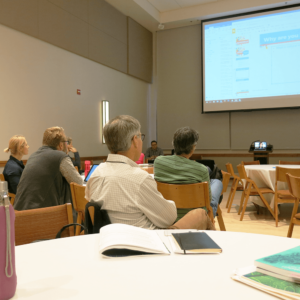
The next morning I attended the official meeting of the CLJ staff. One of the CLJ’s founders, Michael Moore, is a faculty member in WRD, and DePaul students have long helped with tasks related to the journal. The CLJ is moving its home base to Florida International, under the co-editorship of Feigenbaum and Dr. Veronica House of University of Colorado Boulder. We also established new roles for existing staff members, including myself. I will be transitioning into my new role as the Assistant Production and Design Editor alongside Dr. Seth Myers of the University of Colorado Boulder.
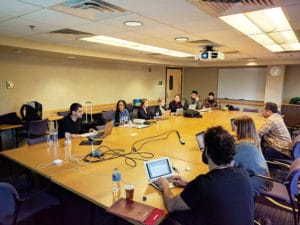
Colorado Fun!
Not only was this my first academic conference, it was also my first time in Colorado. On the last day of the conference, Dush, Rejman, and I went hiking in the Rocky Mountains. Check out some of the pictures below! And if you are a graduate student, consider talking to a faculty member about how to attend a conference: it was a great experience.
